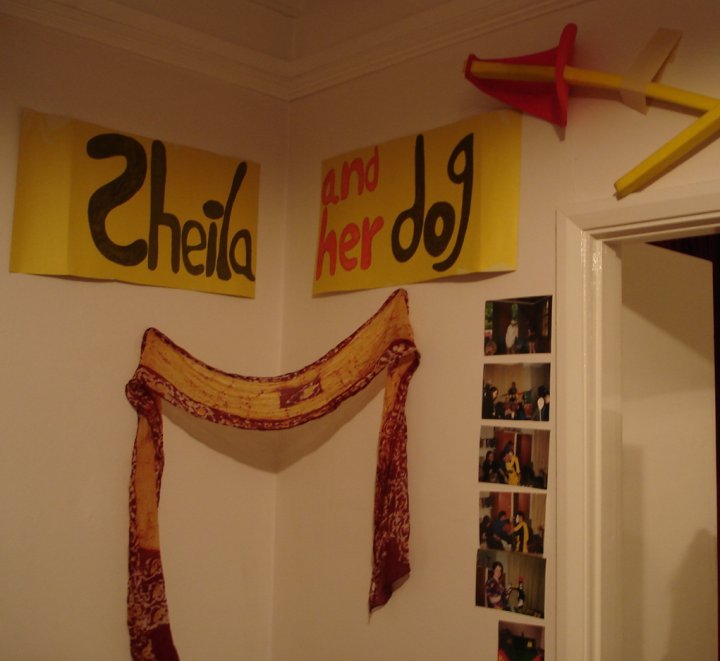
* Between our members, during and over the organizing of our Safer Spaces:
* people who are upset are believed, and without having to detail why;
* apologies and non-repeats of what upset them are expected.
Not having to detail why renders our Safer Spaces suitable for Those Who Do Not Identify with Why they wish for, or need, a Safer Space. Our Safer Space Socs are foremost a Service for these persons, for they often have Nowhere Else to turn to... Both helpful participants and participants there to enjoy the activities are nonetheless also welcome, provided that their having fun there does not involve them having 'fun' at others' expense or elsewise damaging the provision of this Service.
It is in order to properly accommodate Those Who Do Not Identify with Why they need a Safer Space that our Safer Spaces are run to attract 'for fun' participants as well as 'need a safer space' participants and 'are there to support' participants. That way, people can plausibly not say why they are there, and that is very valuable to Those Who Do Not Identify.
* The word SAFEOUT are used to point out that one is upset or uncomfortable with something that is being said or done, point out without risk of not being taken seriously and without risk of drawing any hostility for non-aggressively speaking out. This does not happen often, but when it does, either of these words immediately stop our activities so that the situation is sorted out, this mattering far more in our safer spaces than whatever activities the meeting involves. SAFEOUT - SOME OF US ARE CAUSING IT is used by Safer Space Custodians or Trainees in the case where the problem is being caused by another of our members, as opposed to by a passing member of the public or if someone is upset about something unrelated to the people present. SAFEOUT can potentially indicate a very serious matter and thus cannot be ignored. Ignoring those might on occasion lead to the person doing so being banned for some time from our Safer Spaces. Refusing to apologize, or deliberately repeatedly upsetting people will, if vehement or frequent enough, may lead to the person doing so being banned. Being substantially abusive toward any of our organizers during or over our Safer Spaces will almost certainly lead to us refusing to admit you to our Service, just like the Counselling Services state and do in such a case. Sizeable bans are rarely necessary, around one every 2 or 3 years on average. These reflect that we neither tolerate, nor function effectively as a Service in the the presence of, bullies etc.
* In this part of the world, people wishing to partake of organizing our Safer Spaces do not demand to 'be in charge' but Volunteer to Serve, in full acceptance that the answer may be No, and with No Reason Given. This is entirely essential so as to put the wellbeing of vulnerable people first, and is the same system of governance that LinkLine uses to select its Listeners, and for the same reasons.
* In the case of our Sheila, Sheila's Constitution makes it clear that diversity of opinion is valued here rather than 'having to fit in', but the line is drawn at abusiveness, at the opinion that non-compromisingness and intolerance are OK, and at the opinion that the Constitution can be changed so as to deliberately or carelessly let in the preceding two exceptions. And that Sheila is specifically totally against any kind of abuse based on age or occupation, whether deliberate or ingrained in the ways of other organizations less thoughtful than ours on this matter. Amongst other things, we're a permanent refuge for Good People harried elsewhere on grounds of age or occupation (not so uncommon in Cambridge's social and societal scenes), and that means that our weekend-day reunions with no longer resident members are, whilst not particularly frequent, a very significant part of this society in addition to the more frequent meets. Sheila's a permanent guarantee of a place of respite for all Good People who so wish. Sheila's advertising line of being decades old does not just refer to how long Sheila has existed (since 1986), it means that a fair amount of these people are still connected to the society via reunions and via interest in supporting a Good Thing that we found so very helpful ourselves.
* In those rare times of adversity, our Safer Space people reserve the right to appeal to whichever of our disclaimers or nonpublically declared disciplinary procedures that are carefully designed so as to keep our Safer Spaces welcoming, indeed safe, and able to meaningfully perform our Safer Space Service.
